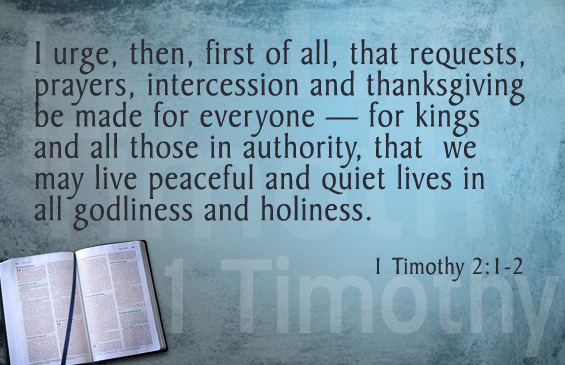In the middle of the first chapter of 1 Timothy, Paul seems to get distracted from the direction of his instructions to Timothy, and breaks into spontaneous worship. We finished memorizing that last week. Now, in verses 18-19, he gets back on track with the direction he was giving his young protege.

The word here that is translated as “instruction” is the same Greek word that is used in verses 3 and 5, where is is translated as “command.” This connects the two passages very clearly. Paul’s concern is that Timothy endure whatever circumstances may come so that he can fulfill the ministry that God has placed him there to accomplish.
Why is Paul so concerned about this young man? Because of the prophecies surrounding Timothy, quite possibly the ones Paul refers to in 4:14, when he mentions Timothy’s commission and the Spirit-bestowed gifts he received when the elders laid they hands on him.
Paul wants Timothy to stand firm, so that he can “fight the good fight.” Paul’s use of strateia here forms images of military strategy and tactics in preparation for battle. In fact, it’s the root for our English word “strategy”.
In order to fight the good fight, Timothy must hold on to faith and a good conscience. Both of these, along with a pure heart, Paul has already mentioned in verse 5. Ignoring these will result in spiritual shipwreck; and in fact, he will go on to mention two men who have done just that in the next verse, which we will examine next week.
Paul’s concern here is for Timothy. But his words ring true for all of us. Holding on to faith and a good conscience are two of the necessary tools we must have to fight the good fight ourselves. Our conscience, for example, is the compass that directs our life. Without a good conscience, it will be too easy for us to drift off course and away from the direction God would have us go. Paul’s instruction to Timothy to hold on to these things is good advice for us as well.
Fight the good fight.
Hold on to faith.
Hold on to a good conscience.
Don’t shipwreck your own faith by rejecting these.
Hold on to them.
What helps you hold on to your faith and a good conscience? You can leave your thoughts in the comments section below.







